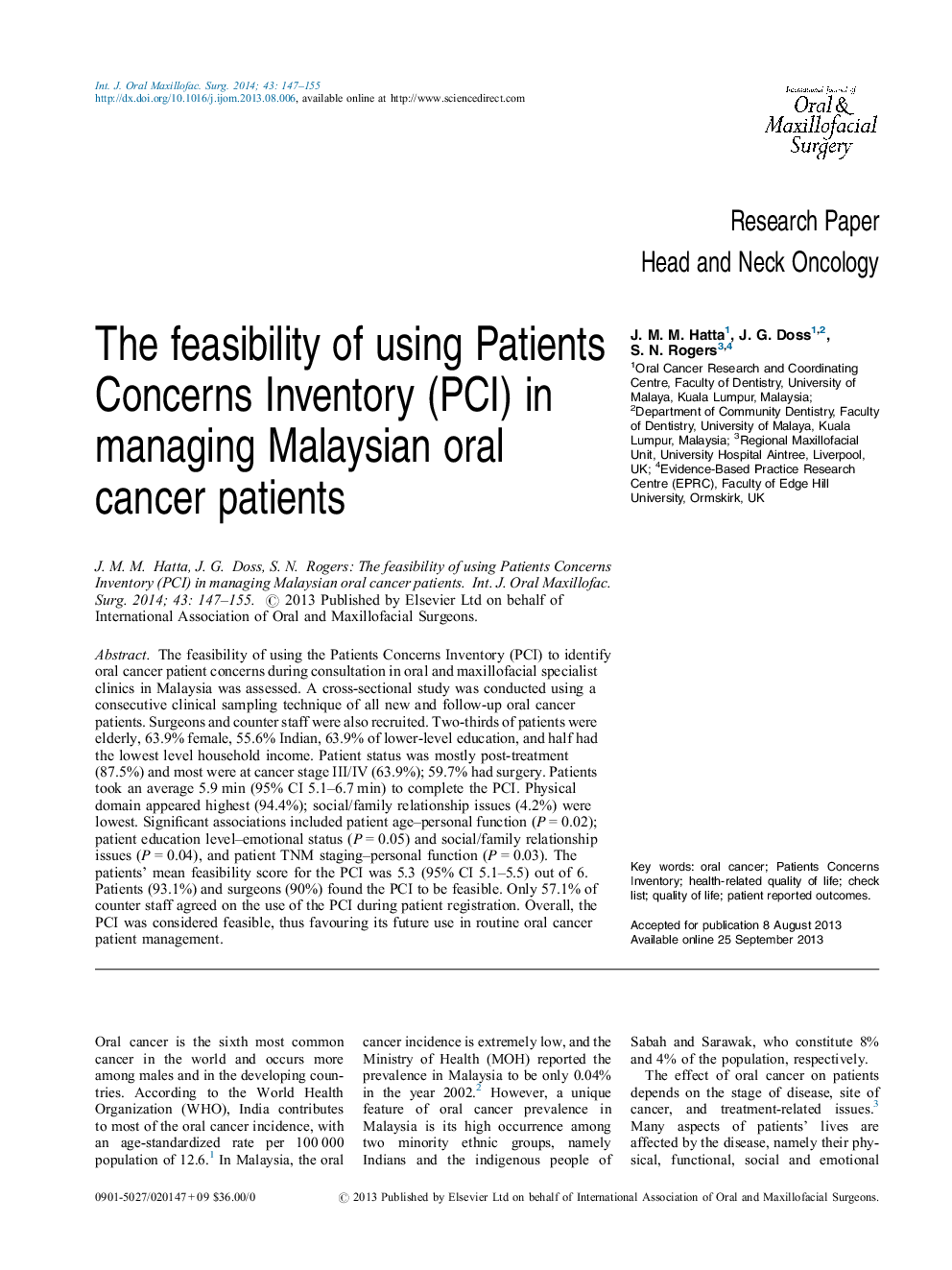| کد مقاله | کد نشریه | سال انتشار | مقاله انگلیسی | نسخه تمام متن |
|---|---|---|---|---|
| 3132453 | 1584145 | 2014 | 9 صفحه PDF | دانلود رایگان |

The feasibility of using the Patients Concerns Inventory (PCI) to identify oral cancer patient concerns during consultation in oral and maxillofacial specialist clinics in Malaysia was assessed. A cross-sectional study was conducted using a consecutive clinical sampling technique of all new and follow-up oral cancer patients. Surgeons and counter staff were also recruited. Two-thirds of patients were elderly, 63.9% female, 55.6% Indian, 63.9% of lower-level education, and half had the lowest level household income. Patient status was mostly post-treatment (87.5%) and most were at cancer stage III/IV (63.9%); 59.7% had surgery. Patients took an average 5.9 min (95% CI 5.1–6.7 min) to complete the PCI. Physical domain appeared highest (94.4%); social/family relationship issues (4.2%) were lowest. Significant associations included patient age–personal function (P = 0.02); patient education level–emotional status (P = 0.05) and social/family relationship issues (P = 0.04), and patient TNM staging–personal function (P = 0.03). The patients’ mean feasibility score for the PCI was 5.3 (95% CI 5.1–5.5) out of 6. Patients (93.1%) and surgeons (90%) found the PCI to be feasible. Only 57.1% of counter staff agreed on the use of the PCI during patient registration. Overall, the PCI was considered feasible, thus favouring its future use in routine oral cancer patient management.
Journal: International Journal of Oral and Maxillofacial Surgery - Volume 43, Issue 2, February 2014, Pages 147–155